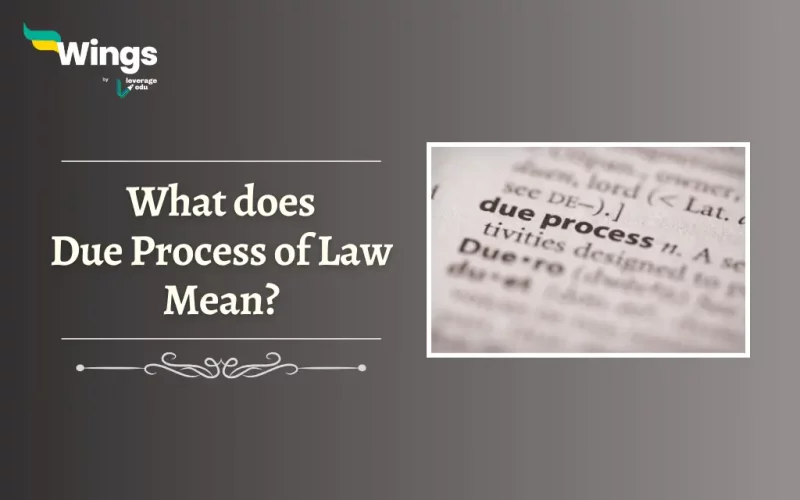Due Process of Law makes sure that the rules and steps are just and fair when justice is served. It implies that the government cannot deny a person their life or liberty without following a specific legal process. Hence, the Due Process of Law means that not only should there be a law in place, but the law must also be just, fair, and reasonable. Moreover, Due Process acts as a check on the government’s power and protects people from dictatorial actions. Read on to learn about the Due Process of Law meaning, its legality in India and a case example!
What are the Requirements of Due Process of Law?
Furthermore, the Due process has two main components:
- Procedural Due Process: This provides fair legal proceedings as well as requires elements like:
- Notice: The person must be informed of the charges or allegations against them.
- Hearing: In addition, the person must have an opportunity to be heard before a decision is made.
- Neutral Decision-maker: Moreover, the decision should be made by an unbiased party.
- Right to Counsel: In some cases, the person has the right to legal representation.
- Substantive Due Process: This guarantees that the laws themselves are fair and just and not too harsh or dictatorial.
However, the specific requirements of Due Process may differ depending on the case.
Also Read: What is Constitutional Morality?
What is Due Process of Law in India?
The Due Process of Law is not entirely based upon the Indian Constitution Article 21 which declares that “No person shall be deprived of his life or personal liberty except according to procedure established by law.”
- However, Due Process has got its meaning through judicial interpretation and has been borrowed from the Constitution of the USA.
- Additionally, it protects people by guaranteeing that laws are not just to be followed by procedural rules, but also need to be fair, just, and reasonable.
- Moreover, the Court can also review the significance of the law to verify that it meets the principles of justice and fairness.
Also Read: What is Judicial Review in India?
Due Process of Law Example
The Maneka Gandhi vs. Union of India (1978) is a landmark case in Indian Constitutional law.
- The issue centred on the confiscation of Maneka Gandhi’s passport under the Passport Act of 1967.
- Moreover, the Supreme Court of India ruled that the right to travel abroad is part of the Right to Personal Liberty under Article 21 of the Indian Constitution.
- Therefore, it saw a shift from the “Procedure Established by Law” doctrine to the “Due Process of Law” doctrine.
- Thus, highlighting that legal procedures must be fair, just, and reasonable.
- Thus, this case increased the scope of Article 21 and showed the Judiciary’s role in protecting our Fundamental Rights against dictatorial State actions.
Related Blogs
Lastly, we hope you liked our blog and gained an understanding of What does Due Process of Law mean. Moreover, you may even read more blogs and empower yourself with knowledge regarding Civics and Polity!
 One app for all your study abroad needs
One app for all your study abroad needs













